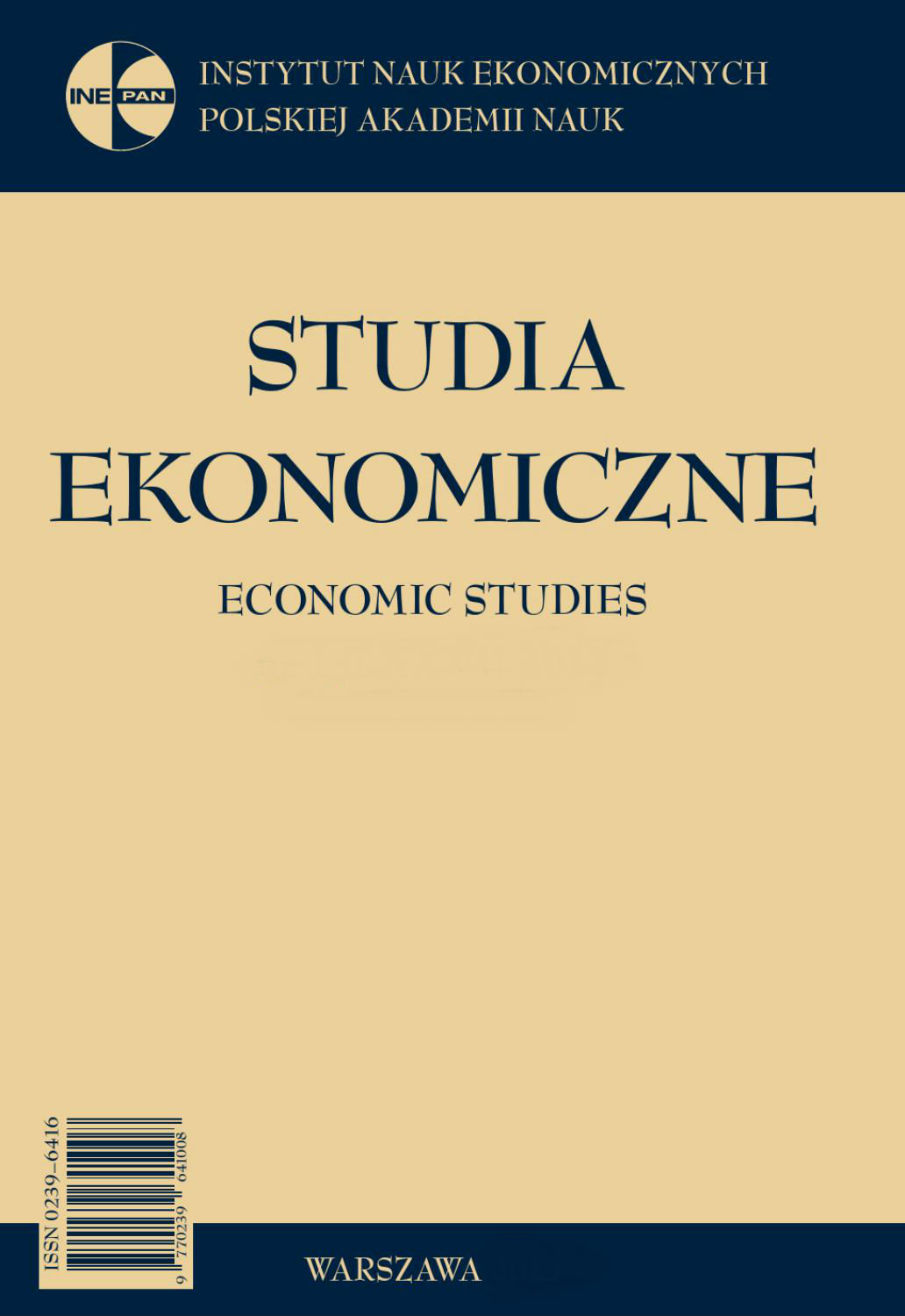Szoki polityki fiskalnej i pieniężnej w Polsce – wpływ na główne zmienne makroekonomiczne w latach 2005–2014
Fiscal and monetary policy shocks in Poland: The impact on the main macroeconomic var-iables in 2005–2014
Author(s): Agnieszka Domańska, Konrad KostrzewaSubject(s): Economy
Published by: Instytut Nauk Ekonomicznych Polskiej Akademii Nauk
Keywords: macroeconomic policy shocks; fiscal shocks; monetary shocks; open economy; structural autoregression models
Summary/Abstract: The aim of the study is to identify the existence and strength of fi scal and monetary shocks in Poland as the determinants of the macroeconomic policy in Poland in 2005–2014. This identification, in line with the approach commonly taken in the literature, will be made through analyzing the impact of the policy changes on the key macroeconomic variables, i.e. GDP, real interest rate and terms-of-trade. The issue of „shocks” is an important concept in the theory as well as empirical studies on the effects of macroeconomic policy, in particular – in view of openness of contemporary economies – its international effects. However, we do not fi nd many studies analyzing the problem in regard to the Polish economy, thus our contribution is aimed to partially fill this gap. The paper covers theoretical and empirical studies. The former addresses the concepts and defi nitions of the macroeconomic shocks as seen in the literature, and reviews the literature, mainly concerning empirical methods used in similar studies, e.g. A. Fatas and I. Mihov (2001); H. Dellas et al. (2005); H. Bouakez (2009); L.Forni et al. (2010); O. Blanchard and R. Perotti (2002). The latter part presents our quantitative study using Structural Vector Autoregression – SVAR, which gained much popularity in similar studies. In order to examine the infl uence of monetary and fi scal policies on the real economy in Poland, a structural VAR model was constructed. The data used cover the period between 1st quarter in 2000 and second quarter in 2104. Based on impulse response functions, it was found that the positive shock in interest rates negatively influences the economic output.
Journal: Studia Ekonomiczne
- Issue Year: 2015
- Issue No: 4
- Page Range: 420-448
- Page Count: 29
- Language: Polish

